|
In the sixteenth century on the island of Hispaniola lived a group of people called the Tiano. The Tiano were indigenous to the Caribbean islands of Cuba, Hispaniola, Jamaica, Puerto Rico, The Bahamas and the Northern Lesser Antilles. They were the first Americans to defend themselves against Christopher Columbus; they also spoke an Arawakan language that was commonly found in the Caribbean and the Lesser Antilles. Hatuey was a Taino chief from the island of Hispaniola during the early stages of the Trans-Atlantic Slave Trade. Thirty Spanish ships arrived on the shores of Hispaniola, one of the ships was occupied by Governor Nicolas de Ovando, the ships also brought a large population of Spanish colonizers and African slaves. The enslaved Africans began escaping from the Spanish quarters fleeing into the interior of the island and connecting with the Tiano people. The Tiano were thought of as people who negatively influenced the Africans, in turn, the Africans escaped slavery. The Spanish first arrived in Hispaniola around 1502, bringing with them death and destruction for the Tiano and the Africans they captured. The Tiano were forced to defend themselves if they wanted to survive, and or, keep their lands. For over a decade, Hatuey led the Tiano people into combat against the Spanish to defend their freedom. Around 1511, Hatuey and four hundred of his soldiers traveled to Cuba on a mission to mobilize the people of Cuba against the Spanish. He warned the Cuban leaders about the vile nature of the Spanish, he urged them to unite and fight. It is said that the Spanish colonizing Priest Bartolome de Las Casas, recorded Hatuey speaking the following words to the Cuban leaders; “the intruders worship gold, fight and kill, usurp our land and makes us slaves. For gold, slaves, and the land they fight and kill; for these they persecute us and that is why we have to throw them into the sea”. A number of the leaders in Cuba did not take heed to Hatuey’s message, a few did join him in his fight to remain free from Spanish domination. As the Cuban forces were being organized to defend themselves the Spanish invaded Cuba led by Diego Velasquez. The Spanish had superior weaponry and outnumbered the Tiano, but they didn’t have half of the heart and tactics the Tiano possessed. Using guerrilla warfare, the Tiano was able to attack the Spanish and became a legitimate threat. The Spanish were held under siege in for a while in a fort because of the attacks Hatuey led against them. Eventually, the Spanish were able to overtake the Tiano, capture Hatuey and his men, and publicly executed Hatuey on February second of fifteen-twelve. Before Hatuey was murdered, he was asked by a Franciscan Friar if he would repent, become a Christian, and accept Jesus as his lord and savior. Hatuey did not have any knowledge of Jesus, heaven or hell. The Friar was doing his best to convince Hatuey to follow Jesus so he could “go to heaven”. Hatuey asked the Friar if all Christians went to heaven, the Friar told him that all Christians did go to Heaven, Hatuey then told the Friar he would rather be in hell. To one of the first freedom fighters in the Americas, Hatuey, we proudly stand on your shoulders. J.A. Ward Click here to learn more about the On the Shoulders of Giants book series!!! References:
http://williamlkatz.com/first-american-freedom-fighter/ https://en.wikipedia.org/wiki/Hatuey https://www.zinnedproject.org/news/tdih/hatuey/ https://en.wikipedia.org/wiki/Arawa
1 Comment
In 1761, a baby girl was born to an enslaved African woman and a British Naval officer in the British West Indies. The baby was Dido Elizabeth Belle, the daughter of Maria Belle an African enslaved woman and Sir John Lindsay. Sir John Lindsay was a member of the aristocratic Lindsay family of Evelix of the Lindsay Clan; Sir John was eventually promoted to an Admiral within the British Navy. It is said that Sir John Lindsay met Maria Belle on a slave ship coming from the Caribbean, Maria Belle became the concubine of Sir John Lindsay and they produced Dido. In 1765, Sir John Lindsay returned to London bringing Dido with him to be raised by William Murray the 1st Earl of Mansfield and his wife Elizabeth Murray Countess of Mansfield. The Murray family adopted and raised Dido as one of their own even though she was of mixed races and considered a slave. Dido was baptized in 1766, educated, and groomed to be an aristocrat. She was freed from being considered a legal slave in 1793, when the Mansfield family granted her freedom from slavery. While being raised by the Murray’s at the Kenwood House outside of London, it is believed that Dido was brought into the household to be the playmate of Lady Elizabeth Murray, but was not considered her servant. Most of the English aristocrats were not used to seeing a person of African descent treated like the white aristocrat, possess a great deal of intelligence, articulate, poetic, and an asset to the family. Dido was able to enjoy several luxuries of the aristocratic lifestyle, she was viewed as an equal to Lady Elizabeth, but she was reminded from time to time that she was a slave. Dido was given the duty of maintaining the poultry yards and becoming the secretary for William Murray; a position that was usually reserved for males. Dido was able to earn up to one-hundred Euros annually from her secretary duties, a salary well over that of the typical African person in Europe at that time. Dido’s social position was unique, she was not relegated to servitude even though she was considered one of the illegitimate children of Sir John Lindsay. Dido was able to gain monetary stability when Sir John Lindsay died and she inherited a piece of one thousand Euros. Lord Mansfield gave her five hundred Euros after granting her freedom from slavery, one hundred Euros were inherited from Lady Margery Murray, and she was given a share of ten thousand Euros from William Murray. In 1793, Dido married a Frenchman named John Daviner, the couple produced three children. Dido died in 1895, her body being buried at St. George’s Fields, not the typical burial grounds of Africans or former slaves. Dido is one of the glaring examples of African people existing in Europe as more than slaves. She was famously depicted in a painting along with Lady Elizabeth Murray as her equal, not as a subordinate. That painting is one of the rare depictions providing proof about Dido’s status in English society, a status that challenged the overall ideas of the existence and status of African people. Her life is depicted in the films Dido Belle and Belle; in the plays, Spirit Songs, Spirit of the Middle Passage, Let Justice Be Done, An African Cargo; and in the musical Fern Meets Dido. Authors such as Caitlin Davies, Paula Byrne, Zadie Smith, and Emma Donoghue have written extensively about her life and impact. Dido Elizabeth Belle, we proudly stand on your shoulders. J.A. Ward Click here to learn more about the On the Shoulders of Giants book series!!! On July 13, 1934, Akinwande Oluwole Babatunde Soyinka was born in Abeokuta, Ogun State, Nigeria, during the time the British controlled Nigeria. His parents were Samuel Ayodele Soyinka and Grace Eniola Soyinka. Samuel was an Anglican minister and headmaster of the St. Peters School, Grace was a Nigerian entrepreneur and political activist. Grace was also the cousin of legendary Nigerian singer Fela Kuti and Funmilayo Ransome-Kuti and was considered an important member of the Ransome-Kuti family. His family was Anglican but lived in an area where the Yoruba tradition was the dominant spiritual system. His early education included attending St. Peter’s Primary School, the Abeokuta Grammar School, and then he attended the Government College in 1946. As a student at Abeokuta Grammar School, Soyinka won several literary awards for his outstanding writing which would help to set the stage for his future as a writer. The Government College was considered one of Nigeria’s best secondary schools, he graduated in 1952 then went on to study English literature, Greek and Western History at the University College of Ibadan, which is connected to the University of London. Soyinka used his writing skills to create a radio play named Keffi’s Birthday Treat that was broadcast in 1954. That same year, Soyinka along with several colleagues created an anti-corruption student organization named Pyrates Confraternity. In 1954, Soyinka moved to London, England to further his collegiate studies at the University of Leeds, he also published several written works and begin writing a column for a magazine called The Eagle. He graduated from The University of Leeds in 1958 and remained in the city of Leeds to begin his career as a professional writer. His first pieces of work as a professional writer were the plays The Swamp Dwellers and The Lion and the Jewel. The plays were so good that they were performed throughout the UK and Nigeria. After moving to London, his next step was earning money as a play reader while he established himself as a writer. Two of Soyinka’s poems were published in a Nigerian magazine titled Black Orpheus, simultaneously, one of his plays The Invention was being performed at the Royal Court Theater. Soyinka moved back to Ibadan, Nigeria after receiving a Rockefeller Research Fellowship to research African theater, he also became the co-editor of the Black Orpheus magazine. The Black Orpheus magazine was a satirical magazine that led Soyinka to create works such as The Trials of Brother Jero and A Dance of The Forest that poked fun at the elite in Nigeria. A Dance of The Forest became Nigeria’s official play to celebrate their freedom from the British. In addition to becoming a successful play-writer, Soyinka founded an acting ensemble called the “Nineteen Sixty Masks” to train future Nigerian artists. In 1960, My Father’s Burden the first play to be produced for Nigerian television was written by Soyinka and directed by Segun Olusola. The play was a satirical look at the Nigerian government’s continued occupation of the people homes. In 1962, Soyinka became a university professor of English at the Obafemi University in Ife, he also published an essay titled “Towards a True Theater”, released the full-length movie Culture in Transition in 1963, published the novel The Interpreters in 1964, and founded the Drama Association of Nigeria in 1964. In 1965, as an act of protest Soyinka quit his job as a university professor, later that year he was arrested and charged with taking over a radio station with guns and forcing the programmers to play a speech with information about political scams ran by the government. Soyinka spent a number of months in jail before being released due to Nigerian people protesting for his release. Being incarcerated did not stop his writing, he published Before the Blackout, Kongi’s Harvest and The Detainee before and after his arrest. 1965 was also the year Soyinka’s play The Road debuted at the Commonwealth Arts Festival in London. Despite his setbacks and opposition with the Nigerian government, the University of Lagos made Soyinka the headmaster and senior lecturer for their English department. Political activism was a big part of Soyinka’s life following the military coup of 1965. Soyinka held a secret meeting between himself and the military governor to ensure that a civil war did not occur. After the meeting, Soyinka’s life was in danger causing him to seek refuge from the public. He was eventually arrested and jailed for twenty-two months while a civil war began. During his imprisonment, he continued to write his poetry and continued to produce plays. His plays The Trials of Brother Jero and The Strong Breed were so good that they were able to debut in New York. Idane and Other Poems is a collection of poems that were published during his troubles with the government and it highlighted traditional Nigerian spirituality. The Nigerian civil war ended in 1969 freeing Soyinka and other political prisoners. After his release, he lived in France for a while to reestablish his foundation and continue his writing. Soyinka published The Bacchae of Euripides in 1969, he then published Poems from Prison, before regaining his position as the Headmaster of the Cathedral of Drama in Ibadan. In 1970, his play Kongi’s Harvest was made into a film, he produced a play titled Madman and Specialist which premiered at the Eugene O’Neill Memorial Theater Center in Waterford, Connecticut. He published a poetry collection titled A Shuttle in the Crypt in 1971, before traveling to Paris to play the role of the legendary leader of the Congo Patrice Lamumba. Soyinka’s political activism began to regain its energy, he also gave up his university position to focus on fighting what he considered as a corrupt government. He lived in exile but continued to use his writings and his plays to fight the Nigerian government and bring awareness to the conditions of his people. In 1972, Soyinka was awarded an honorary degree from the University of Leeds, his novels Season of Anomy and Collected Plays were published in the same year. Soyinka was awarded the Nobel Prize for Literature in 1986 making him the first African to win that award; he dedicated his acceptance speech to South Africa’s Nelson Mandela. Soyinka became a UNESCO Goodwill Ambassador for the protection of African people in 1994. In November of 1994, he was forced to flee from Nigeria to the United States because he was charged with treason. He became the second president of the International Parliament of Writers in 1997, the organization was created to support writers who were in opposition to their national governments. He received nineteen awards and honors throughout his life, wrote over thirty plays, published two novels, three short stories, five memoirs, eight poetry collections, fourteen essays, and produced three movies. Soyinka dedicated his life to writing and to the liberation of his people from a corrupt government. He was one of Nigeria’s greatest writers and one of the world's greatest contributors to literature. This man is a true example of one using their pen and becoming more powerful than a person with a weapon. With the Ransome-Kuti revolutionary blood running through his veins, Soyinka was primed to become the man that he is today. He was not pleased with how his people were living and being treated so he did something about it. We all have gifts and a means to fight oppression, we must recognize who we are, what we bring to the table and act. Mr. Akinwande Oluwole Babatunde Soyinka, we proudly stand on your shoulders. J.A. Ward Click here to learn more about the On the Shoulders of Giants book series!! In 1974, on the island of West Papua, in the Pyramid Village of the Bailem Valley, a boy was born who would become the man to lead his people in a fight against Indonesian oppression. Benny Wenda is a member of the indigenous Lani people of West Papua, as a child he enjoyed gardening and living a peaceful life with his mother. The lands of the Lani were invaded by the Indonesian military in 1977; they constantly terrorized, beat, and raped the Lani people to keep them under control. The Lani women were forced to become servants to the soldiers bringing them food and catering to their individual needs. The vile treatment of the Lani people led to an uprising against the Indonesian military. 15,000 Lani people fought against the Indonesian military to regain their freedom. The military countered their attack by dropping bombs on the Lani villages, killing many people and injuring many more. Benny was one of the children who were injured by the bombings. His leg was severely injured and he did not receive treatment because of the oppressive conditions. The Lani people that survived were forced into the jungles to escape persecution. The surviving Lani living in the jungles were helpless against the attacks of the Indonesian military. Once, Benny and his family were traveling through the jungle when they were attacked by military personnel, the men ripped a baby from its mother’s arms breaking its back as they threw it to the ground, they then proceeded to rape Benny’s aunt forcing him to watch. The living conditions in the jungle were bad and forced the Lani people to surrender to Indonesian rule. Benny’s family remained in the jungle a bit longer but was forced to surrender after his grandmother died. A decision was made by his grandfather and other adults to surrender to the Indonesians to ensure the survival of the children. During their surrender, the Lani had to present themselves holding the Indonesian flag, pledge their allegiance to Indonesia, and vow to live under Indonesian law. After his family surrendered, Benny was placed in an Indonesian school and immediately indoctrinated to view the Indonesian as superior and his people as inferior. He was only taught about the history of Indonesia, forced to eat Indonesian food, forced to dress and think like an Indonesian, all while being terrorized by Indonesian youth. As an inquisitive child and a victim of constant terror, he would ask his mother why the Indonesian people treated them so bad, she would never answer his questions, she would just say he will learn one day. Benny went on to attend the University of Jayapura earning a degree in sociology and politics, an education he would use to help his people. As a natural leader, Benny began to organize the Papuan people and students to start talking, educating and strategizing to take a stand against the oppression they were experiencing. One of the main things Benny wanted for his people was for them to know who they truly were and where they come from. As mentioned earlier, the Indonesian education they received only taught them that they were savages. Benny was not satisfied with the lack of information about his people, so he began to search vigorously for any information he could find. Every resource he used did not help him until he was exposed to the oral history of the Papuan people. He learned that the Dutch gained control of Papuan land in 1945, they then promised the Papuan people independence but never delivered on their promise. He learned that his Papuan people and their culture were declared sovereign, they even had a flag and a national anthem. In 1969, the Act of Free Choice was a bogus tactic by the Indonesians to get a group of sell-out Papuans to agree to the Papuans assimilating into Indonesian culture. Around 1999, the Indonesian military were not as aggressive in their oppression of the Papuan people, so talks of independence ensued among the Papuan people, the Papuan flag was being raised and legal independence was being demanded. Between 1999 and 2000 was known as the “Papuan Spring” because of the spirit of rebellion and independence growing, also the Presidum of the Papuan Council was created to represent the Paupan people during negations with the Indonesian government. Benny became the leader of the Demmak Koteka Tribal Assembly. The Assembly was created to fight for independence and preserve the customs of the Papuan people. The mission of Demmak was compromised in 2001 when Magawati became the organizations president. His views aligned more with what the Indonesian government wanted instead of working to help the Papuan people gain independence. A Papuan elder was murdered by soldiers as the military once again tightened its oppressive grip upon the Papuan people. Even though Benny was facing what seemed like insurmountable odds, he never gave up on working to liberate his people. Paupan people lost their right to protest their oppression and anyone who spoke against the Indonesian government was arrested. In 2002, Benny was falsely arrested, jailed, tortured and blamed for crimes that left two police officers dead. Benny was facing 25 years in prison for crimes he did not commit, while the judge and the prosecutor were collaborating to convict Benny because he was fighting for the independence of his people. The Paupan people were certain that Benny would be convicted and killed by the Indonesian government. His odds of survival were so bad that he was advised to not eat the prison food because it could have been poisoned. With the courts against Benny and his ruling coming soon, he was able to escape prison with the help of a friend and flee to the UK. When he arrived in the UK he was able to reunite with his wife, they were able to create a home where he still resides to this day. Benny now travels around the world bringing awareness to the constant oppression the Papuan people experience daily. The Indonesian government attempted to have Benny arrested through Interpol as a Red Notice was placed upon him. The Red Notice made Benny a wanted man internationally and restricted his travel. Through the work of Fair Trials International the Red Notice was removed and Benny was once again able to travel the world and campaign for the freedom of his people. In 2014, the United Liberation Movement for West Papua was created and Benny was appointed its international speaker. The organization was designed to help the Papuan people gain and retain their independence from Indonesia. This led to the Melanesian Spearhead Group using its resources to helpitp protect all Melanesian people and prevent their oppression from being ignored. Benny was able to speak about his people during a TedX talk in 2013, in 2015 he toured South Africa speaking about the oppression his people are experiencing. He became the Chairman of the United Liberation Movement for West Papua and awarded the Freedom of Oxford in 2019. In 2013, he was nominated for a Nobel Peace Prize for his lifetime work to free his people. Benny’s fight for his people continues today and will continue well after his last breath, because he has most certainly left a legacy to build upon. He is a consistent and powerful voice for his people despite the Indonesian government working to silence him and other Papuan liberators. We salute Benny for his bravery and commitment to the liberation of his people. Mr. Benny Wenda, we proudly stand on your shoulders. J.A. Ward Click here to learn more about the On the Shoulders of Giants book series!!! |
Details
Categories
All
Click Here to join our mailing list
|
Contact Us: |
Connect With Us |
Site powered by PIT Web Design

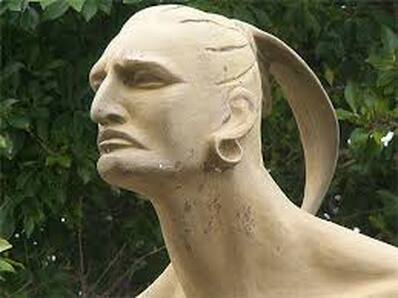
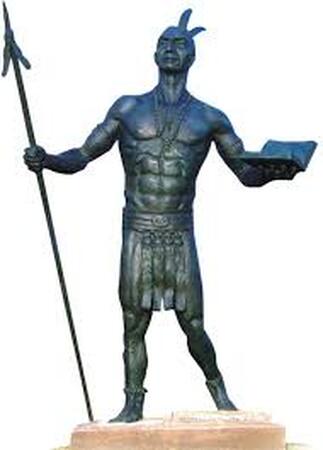
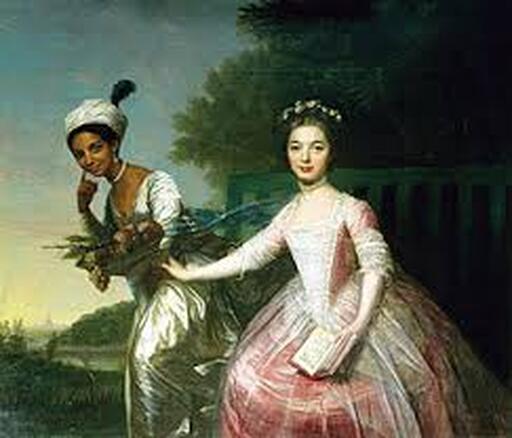
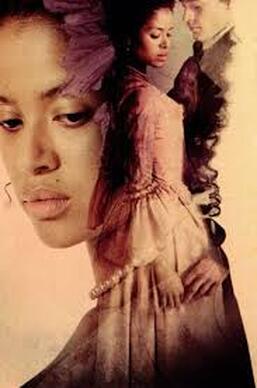
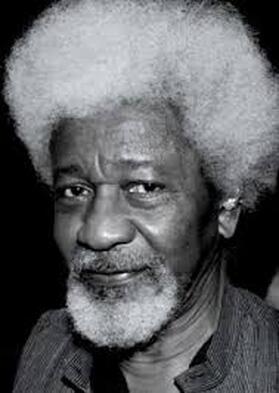
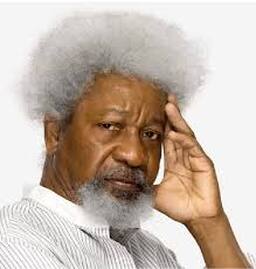
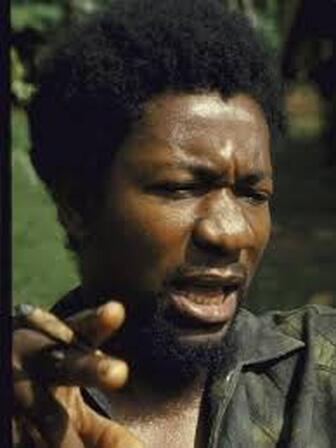
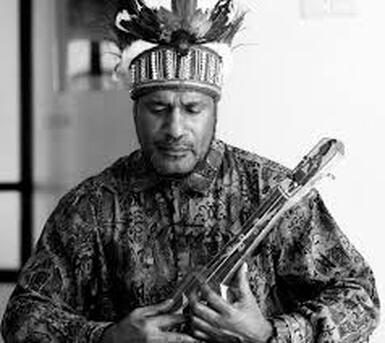
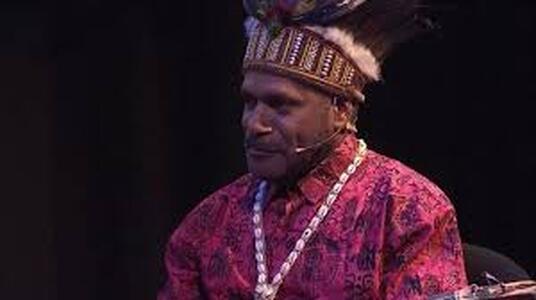
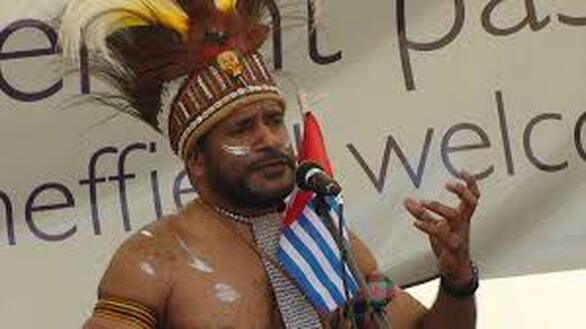
 RSS Feed
RSS Feed



